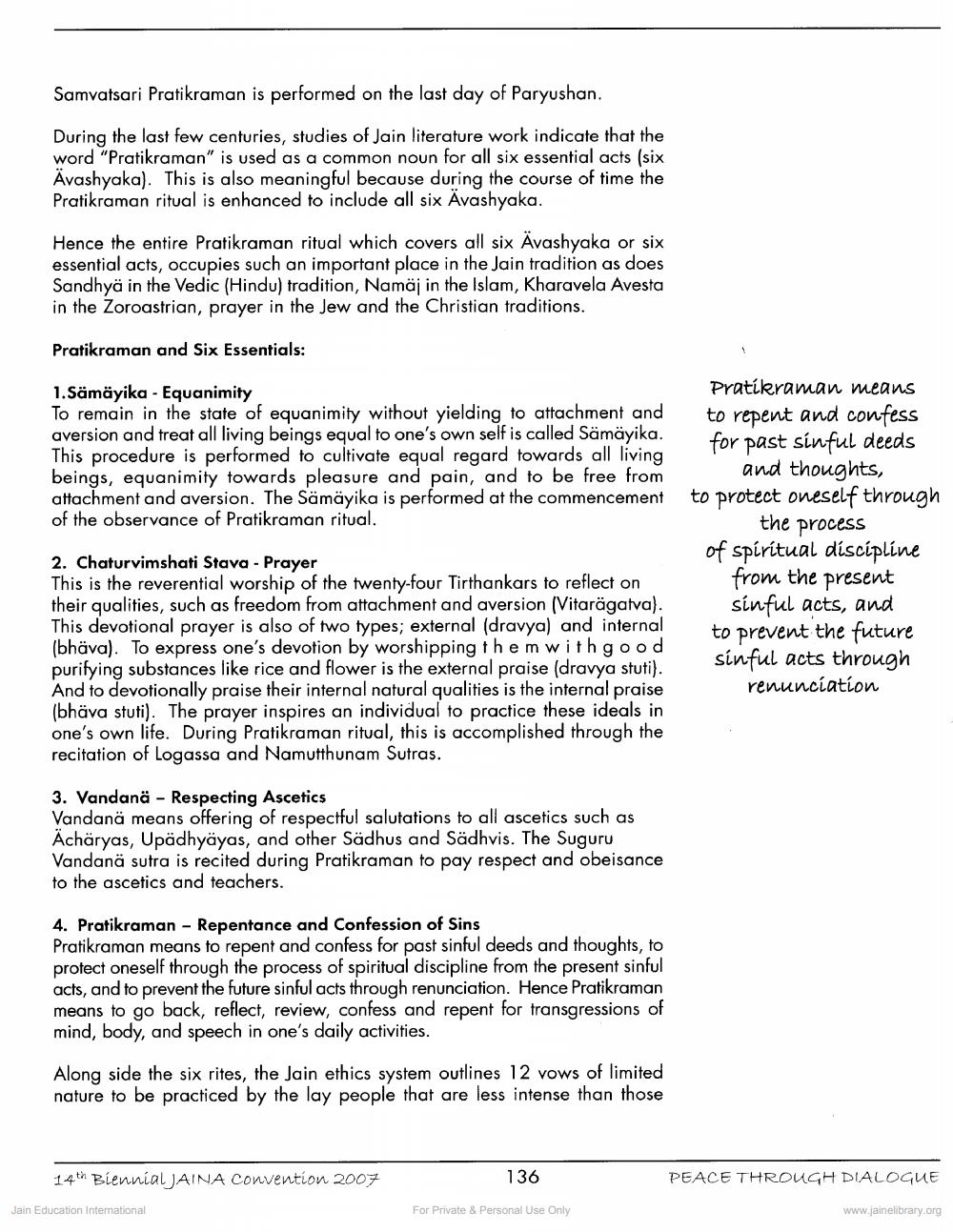________________
Samvatsari Pratikraman is performed on the last day of Paryushan,
During the last few centuries, studies of Jain literature work indicate that the word "Pratikraman" is used as a common noun for all six essential acts (six Ävashyaka). This is also meaningful because during the course of time the Pratikraman ritual is enhanced to include all six Avashyaka.
Hence the entire Pratikraman ritual which covers all six Ävashyaka or six essential acts, occupies such an important place in the Jain tradition as does Sandhyä in the Vedic (Hindu) tradition, Namäj in the Islam, Kharavela Avesta in the Zoroastrian, prayer in the Jew and the Christian traditions.
Pratikraman and Six Essentials:
1. Sämäyika - Equanimity To remain in the state of equanimity without yielding to attachment and aversion and treat all living beings equal to one's own self is called Sämäyika. This procedure is performed to cultivate equal regard towards all living beings, equanimity towards pleasure and pain, and to be free from attachment and aversion. The Sämäyika is performed at the commencement of the observance of Pratikraman ritual.
Pratikraman means to repent and confess for past sinful deeds
and thoughts, to protect oneself through
the process of spiritual discipline
from the present
sinful acts, and to prevent the future sinful acts through
renunciation
2. Chaturvimshati Stava - Prayer This is the reverential worship of the twenty-four Tirthankars to reflect on their qualities, such as freedom from attachment and aversion (Vitaragatva). This devotional prayer is also of two types; external (dravya) and internal (bhäva). To express one's devotion by worshipping them with good purifying substances like rice and flower is the external praise (dravya stuti). And to devotionally praise their internal natural qualities is the internal praise (bhäva stuti). The prayer inspires an individual to practice these ideals in one's own life. During Pratikraman ritual, this is accomplished through the recitation of Logassa and Namutthunam Sutras.
3. Vandana - Respecting Ascetics Vandana means offering of respectful salutations to all ascetics such as Acharyas, Upadhyayas, and other Sädhus and Sadhvis. The Suguru Vandana sutra is recited during Pratikraman to pay respect and obeisance to the ascetics and teachers.
4. Pratikraman - Repentance and Confession of Sins Pratikraman means to repent and confess for past sinful deeds and thoughts, to protect oneself through the process of spiritual discipline from the present sinful acts, and to prevent the future sinful acts through renunciation. Hence Pratikraman means to go back, reflect, review, confess and repent for transgressions of mind, body, and speech in one's daily activities.
Along side the six rites, the Jain ethics system outlines 12 vows of limited nature to be practiced by the lay people that are less intense than those
14th Biennial JAINA Convention 2007
136
PEACE THROUGH DIALOGUE
Jain Education Intemational
For Private & Personal Use Only
www.jainelibrary.org




